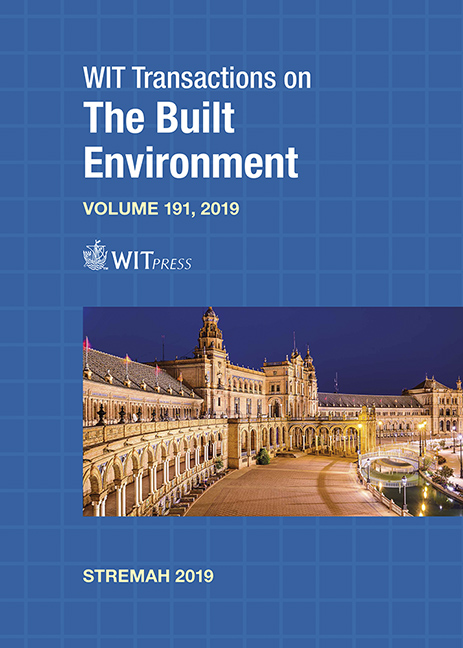ANALYSING THE IMPACT OF COMPREHENSIVE REFURBISHMENT POLICIES ON SOCIAL AND HERITAGE PROTECTION ISSUES
Price
Free (open access)
Transaction
Volume
191
Pages
12
Page Range
309 - 320
Published
2019
Paper DOI
10.2495/STR190271
Copyright
WIT Press
Author(s)
OLATZ GRIJALBA-ASEGUINOLAZA, ARRITOKIETA EIZAGUIRRE-IRIBAR
Abstract
Urban regeneration and housing refurbishment policies have prioritised integral interventions in the last few decades by considering together energetic efficiency, accessibility and safety issues. However, the increasing complexity of this approach can lead to the weakening of other important aims such as heritage protection or addressing social vulnerability. Accordingly, the objective of the paper is to analyse the evolution of current refurbishment strategies and their effects on socio-economic inequality and built-heritage conservation in order to identify deficiencies and stablish criteria to address them and improve existing public refurbishment programmes. For that purpose, variables related to each issue (refurbishment public aid, heritage preservation and socio-economic vulnerability) have been defined and analysed using GIS, overlapping data related to different variables and studying the relations between them at different scales (urban, census section and building). The city of Donostia (Gipuzkoa, Spain) has been used as a case study, where areas have been clustered according to the connection between the three aspects so that specific strategies can be developed and implemented for each case.
Keywords
refurbishment policies, energy efficiency, heritage, socio-economical vulnerability




